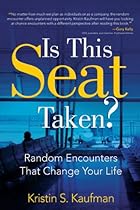One of the great difficulties in shifting an organization from a hierarchical, command and control structure to a more networked wirearchical one is that you have to work both ends at once. Strategic guidance and high level models are rather abundant; for instance we generally know that organizations should be flatter, information should be democratized and risk & failure should be made more acceptable. Examining a business and looking at how it can be more social, innovative and agile is not really that difficult. From both inside and outside the organizations, most gaps are easy to identify. But the main challenge is what to do about them. Consultants, and even key internal staff, can often identify the problem (at the time) but then they move on to the next problem before much change has happened.
Complexity theory tells us that complex problems need to be probed through action before any sense can be made of them. Changing to a social business is complex. Dave Snowden has operationalized this with the Cynefin framework (Probe-Sense-Respond in complex environments).
But, as Dave has reminded me, over half of our probes will fail. That means we cannot create a plan for the organizational shift and then implement it. It has to be designed as a work in progress, or really a series of works in progress.
My experience, especially this past year, is that social business is just a different organizational culture. But you cannot directly change it or implement it. Culture is an emergent property of the many practices that happen every day. Change the practices and a new culture will emerge.
Communities of practice are often where work practices get developed. Even without formal approval, communities of practice exist and have a great influence on the organization. They can be a bunch of workers in the lunchroom or the CEO's inner circle. They learn from each other by modelling behaviour. We may not even realize we're modelling (and adopting) behaviours, but it happens all the time; like keeping your mouth shut when an executive says something really stupid.
So how would you re-focus an existing organization? First you need the frameworks and new ways of talking about business in place. These are based on the concepts Steve Denning, Gary Hamel, John Hagel and others talk about (radical management, management innovation, edge perspectives). Then you need to identify Probes, or what Dave Snowden calls safe-fail experiments. These are designed to be not so large that failure would seriously damage the company.
Next comes the trickier part. These probes have to be supported. How do you take a team that has never narrated its work and tell it to "be more transparent" or "share knowledge with customers". New ways of doing things have to be practised, modelled and developed in a non-confrontational environment. It takes time. Not an inordinate amount of time with good support, but it doesn't happen in a matter of week; more usually months.
For example, we've worked with distributed groups who are focused on improving collaboration. Everyone is onboard at the onset. But after an initial week or two we notice that nobody is sharing information. They say there's no time to do it, but this is not a lack of motivation, it's a lack of skills. However, these types of social skills require much more practice than theory.
During one of these probes, there can be lengthy periods of time coaching, cajoling and modelling, but at some point, things click with someone. This person sees how these new ways of working are really helping get work done. Someone else gets positive feedback from people outside the team. After a period of time there is no more need for outside help and the team becomes a model for the new business behaviours such as taking initiative in delighting customers. Ideas are supported, not shot down. People build on others' ideas. One other thing; the end result of a probe is never what we thought it would be.
Like learning a new language, getting access to the right knowledge is only a small part of the solution. The best curriculum and best designed courses will have no effect if people do not practice. Formal instruction, or lecturing, is minimal in any of these probes. People need to do in order to understand. It's social. Individuals practising on their own will not get the entire organization functioning in the new language either. It has to happen cooperatively. Getting feedback from experienced people, while engaging in peer learning, will help develop next practices in social business. But it requires time, effort and patience.
I've been told that you know you're in a real community of practice when it changes your practice. It's a good measuring stick.
There is no doubt in my mind that you need to work both ends at once: develop a flexible, contextual strategy but also practice new behaviours through a continuing series of probes. Supporting these probes and learning by doing are essential. Engaging in probes where failure is an option can be an extremely valuable learning process. It can even be transformational. Developing a strategy and then following the plan is just another 20th century "change management" process. It is backward looking, based on a plan that is outdated the moment it is published. In the 21st century, the aim is not to manage change, but understand and embrace change. It's shifting to an acceptance of life in perpetual Beta.
Thanks for Harold Jarche / Jarche / Harold Jarche
http://www.jarche.com/2011/11/embracing-change-from-both-sides/
BlogSpot:- http://ziaullahkhan.blogspot.com
RSS/Feed:- http://feeds.feedburner.com/Z-S---KnowledgeCenter
 | This email has been checked for viruses by Avast antivirus software. |

